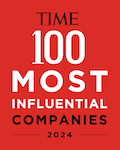25 leading businesses step up to support refugee women through mentorship at the European Business Summit on Refugee Women

Gender inequality affects women and girls all over the world. In companies’ boardrooms, in classrooms, and in individual households, outdated perceptions and social norms about women and their place in society put them at a considerable disadvantage when it comes to employment.
The European Business Summit on Refugee Women, a virtual event hosted by the Tent Partnership for Refugees and Catalyst, highlighted the employment disparities faced by refugee women, and recognized a group of 25 businesses that joined a new mentorship initiative to help prepare refugee women for the European workforce. During the event, companies – including adidas, American Express, BNP Paribas, L’Oréal, and PepsiCo – collectively pledged to mentor 1,250 refugee women, in 10 European countries, over the next three years.
With an average employment rate of just 45% for refugee women in Europe (compared with 62% for refugee men) – the program highlighted the important role that businesses can play in helping refugee women access the job market and succeed in their careers.
Ylva Johnasson, the European Commissioner for Home Affairs, who spoke on a panel during the event said, “We have so many refugee women who have their energy, capacity, and knowledge being underestimated — this is the biggest mistake we can make when integrating these women into our society.”
Commissioner Johansson was joined by Hamdi Ulukaya, the founder of Tent and founder and CEO of Chobani; Sylvia Metayer, Chief Growth Officer at Sodexo; and Nicole van Det, Country Managing Director at Accenture Netherlands for the panel discussion.
Ulukaya noted the important role that mentorship can play in building the confidence of refugee women and offering pathways to employment, saying, “Many women come from cultures where women are not a part of the workforce. When they see women working, it can break those barriers and change their lives forever.”
Ms. van Det encouraged businesses to see the refugee women mentorship program as an opportunity to improve company culture and increase employee engagement. “We need to remind ourselves we’re not doing this for charity, we’re doing this because it is beneficial for both sides,” she said. “It’s beneficial for refugee women, but also for your employees. It is important to have that perspective.”
The discussion also uncovered some of the practical reasons why companies should be interested in mentorship programs and preparing new groups of talent to enter the workforce. Ms. Metayer spoke of the demand for women workers at her company, particularly amid record high labor shortages on the continent, saying, “Ninety percent of our employees are frontline, and the vast majority of these frontline workers are women. You can do the business case quite fast for why it is important for us to have a pipeline of women workers.”
Providing a first-person account of the difference mentorship can make in the life of a refugee woman, the program also featured a conversation with Iranian refugee and human rights activist, Mona Asadi. After fleeing the country in 2012, Ms. Asadi was granted asylum in the Netherlands, where she learned Dutch and studied business. Ms. Adasi currently serves as a Management Trainee at ManpowerGroup, one of the companies participating in the Refugee Women Mentorship Initiative.
“From my own experience, when I started at ManpowerGroup, I did not have so much self confidence…I had self-doubt that limited my daily performance. When I was given the opportunity to talk with my mentor, it slowly became clear to me how to deal with these challenges,” Ms. Asadi said.
To find out more about the initiative and the 25 companies which committed to mentoring refugee women, read the press release here, and watch the event recording below.
 Tent Named to TIME100 Most Influential Companies List
Tent Named to TIME100 Most Influential Companies List